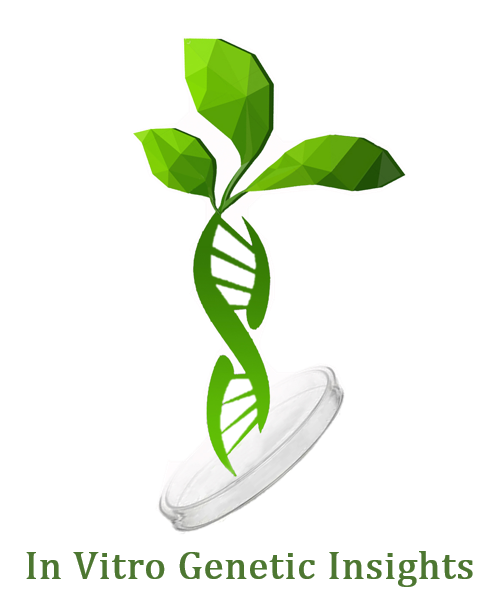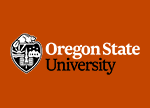Genes Affecting Plant Regeneration and Transformation in Poplar
 Regeneration of differentiated organisms from single cells is a critical need for functional genomics and for the production of genetically engineered organisms. The project will conduct a genome-wide investigation of the genes that control regenerability and transformation (RT) in Populus, which is one of the best studied crop species with respect to these traits. Extensive genomic resources for Populus will be leveraged, including rich transcriptome databases, a high-quality reference genome, and a fully resequenced genome-wide association study (GWAS) population of 1,084 undomesticated genotypes with extremely low levels of linkage disequilibrium. The value of the GWAS population for gene identification for a variety of traits, including those related to in vitro regeneration, has already been established. The project will identify genetic elements that control RT, develop novel phenomic methods based on image analysis, and develop new social science and education methods for teaching about genetic engineering to diverse high school students and teachers. More about the project background and expected deliverables (PDF, September 2016).
Regeneration of differentiated organisms from single cells is a critical need for functional genomics and for the production of genetically engineered organisms. The project will conduct a genome-wide investigation of the genes that control regenerability and transformation (RT) in Populus, which is one of the best studied crop species with respect to these traits. Extensive genomic resources for Populus will be leveraged, including rich transcriptome databases, a high-quality reference genome, and a fully resequenced genome-wide association study (GWAS) population of 1,084 undomesticated genotypes with extremely low levels of linkage disequilibrium. The value of the GWAS population for gene identification for a variety of traits, including those related to in vitro regeneration, has already been established. The project will identify genetic elements that control RT, develop novel phenomic methods based on image analysis, and develop new social science and education methods for teaching about genetic engineering to diverse high school students and teachers. More about the project background and expected deliverables (PDF, September 2016).
Presentations
Analysis of Genes Affecting Plant Regeneration and Transformation in Poplar
Presented at the NSF PGRP Awardees Meeting (online) 2020
Steven H. Strauss, et. al.
Recognition and quantitative analysis of transformation in tissue cultures using hyperspectral imaging and machine learning
Society for In Vitro Biology National Meeting (online), June 2020
Steven H. Strauss, et. al.
Transformation Improvement in Poplar (Populus trichocarpa): Effects of antioxidant and auxin treatments
Poster presented at: Society for In Vitro Biology National Meeting (online), June 2020
Michael Nagle, Cathleen Ma, Ekaterina Peremyslova, and Steven H. Strauss
Transformation phenomics: Detection of transgenic tissues in plant tissue cultures by cross-referencing of RGB and hyperspectral image datasets analyzed by deep learning and regression
Phenome 2020, Tucson, AZ, February 2020
Michael Nagle
NSF PGRP Poplar GWAS 2nd External Advisory Meeting, October 2019
Oregon State University, Corvallis, October 2019
Steve Strauss, Michael Nagle, Cathleen Ma, and others
Analysis of Genes Affecting Plant Regeneration and Transformation, NSF PGRP Awardees Meeting, Arlington, VA
Jialin Yuan, Zheng Zhou, Michael Nagle, Peremyslova Ekaterina, Ali Behnoudfar, Nihar A. Doshi, Ritesh Mewalal, Cathleen Ma, Anna Carlina Magnuson, Yuan Jiang, Steven H. Strauss, and Fuxin Li. 2019.
Web-based Annotation Tool for Image-based Phenotyping. Computer Vision Problems in Plant Phenotyping (CVPPP 2019), Long Beach, CA.
Web- Based Deep Segmentation Tools for Phenotyping, Plant and Animal Genome Meeting, San Diego, CA, January 2019
Next-generation phenomics in support of GWAS to Identify Genes Controlling Regeneration and Transformation in Populus trichocarpa, Plant and Animal Genome Meeting, San Diego, CA, January 2019
Genome-wide association studies of regeneration in Populus with machine vision and hyperspectral phenomics, Plant and Animal Genome Meeting, San Diego, CA, January 2019
Digital Literacy and GMOs, October 2018
Education and Social Science Efforts, September 2018
Analysis of Genes Affecting Plant Regeneration and Transformation in Poplar, Steve Strauss, September 2018
Phenomics pipeline for high-throughput image analysis of in vitro plant development, July 2018
PGRP: Outreach and Social Science, Troy Hall and Jay Well, Presentation at SMILE Teachers Conference, OSU, January 2018
Project Overview: Analysis of genes affecting plant regeneration and transformation in poplar, Presentation to SMILE teachers at Teachers Conference, OSU, January 2018
Advisory Committee members filled out a short survey after the meeting to reflect and give feedback. Check out their results!
We held our first Advisory Committee meeting on 12/20/2016 and 12/22/2016 with great success. A full PDF (19 MB) of the nine combined presentations can be downloaded here.
Broader Impacts
The Broader Impacts portion of this project includes a major effort to study and create education materials to promote biotechnology literacy. They are intended for use by middle and high school STEM teachers, with a focus on underrepresented students. The draft curricula below were created under this effort, and are available to all for use in full or part. These materials were created by Jay Well, Betsy Emery, Troy Hall, and Michael Nagle of Oregon State University in 2018-19. As they are still evolving, we would much appreciate any feedback about their structure or content.
Please contact the PI with any feedback: Steve.Strauss@OregonState.Edu
SMILE curricula to date:
- Nature of Science
- Fact Checking in an Era of Fake News
- Eras of Crop Improvement
- Why Genetically Modify?
- Methods of Food Modification
- Investigating the GMO Controversy
SMILE program curricula can also be found at
https://smile.oregonstate.edu/
Publications
Hall, TE, Well, J, Emery E. 2021. Fact-Checking in an Era of Fake News. National Science Teaching Association
Emery E, 2020. What Do People Think About Genetically Engineering Trees? A Qualitative Inquiry to Understand How People Reason About Using Forest Biotechnology to Address Forest Health Threats. Master's Thesis. Oregon State University.
Nagle M, Déjardin A, Pilate G, Strauss SH. 2018. Opportunities for Innovation in Genetic Transformation of Forest Trees. Frontiers in Plant Science. 9
Chang S, Mahon EL, MacKay HA, Rottmann WH, Strauss SH, Pijut PM, Powell WA, Coffey V, Lu H, Mansfield SD et al. 2018. Genetic engineering of trees: progress and new horizons. In vitro Cell. Develop. Biol. 54:341-376.

